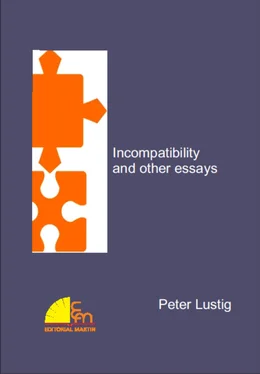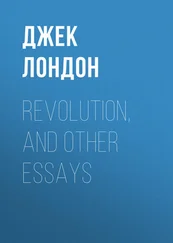Some standard opinions on certain rights that all men are entitled to enjoy refer to conventional appraisal of a political identity and the principle of equality applying across the board, as a tribute to fairness or “social justice”. In this way, it is assumed that no entity is likely to be overwhelmed, at least not without having the opportunity to stand up and fight to the bitter end. But this is precisely what should be avoided, given the prospects for war in the atomic age. To assume that an evolutionary stage may have been reached where a realization of the futility of war had sunk in, for anything other than its dismal prospects, sounds unconvincing. It would be closer to the truth to admit that learning takes place in response to necessity and not that any miraculous change should have taken place in human nature. The fewer the illusions that may lead to disappointments, the more sensible and realistic the diagnosis and, obviously, the greater the likelihood of finding an appropriate solution.
Can it be said that democracy, in its current form, addresses the needs of modern society? Even though there exists a general consensus about it being the least ominous system of government, opinions are divided as to its suitability in all circumstances. The notion that things will work themselves out in due time, provided they are dealt with rationally, is under heavy pressure from conflicting evidence. A majority might easily be swayed to regard the multicultural vanguard as a sort of demographic advance upon the West (although it should be happening anywhere in the world, thus offering proof that globalization has been around for a long time), as an outcrop of post-colonialism and, more closely, of post-imperialism and the ensuing displacement of populations through persecution.
As soon as the moderately liberal Western middle sectors became convinced that they were under a concerted attack by Muslims, uncannily indifferent to extremism in their midst, a preventive religious war might be launched, to put these people out of business, before they can get their demographic onslaught under way. Already the version is doing the rounds that, by such and such a date, Muslims will have displaced Westerners on their home ground, thanks to higher birthrate figures that will determine the shape of the population. With universal suffrage in force, a 51% majority should suffice to throw the whole system off balance. The argument is simple enough for any unsophisticated layman to foresee what he will be up against. Who is going to tell a population that feels threatened and thinks there may still be time to take action before it is too late, to lie low while education makes headway trying to induce culturally estranged and maybe hostile outsiders to integrate?
It is widely accepted that literature ought to be the spokesman for a culture. Nothing of the sort would be expected or demanded of science and mathematics. Everything in their field is assumed to be universally valid on its on merits. Yet, in the widely underrated teaching profession, a literature teacher barely commands more respect than a teacher of foreign languages. Might one ask why?
Literature has long been portrayed as the harbinger of a national identity, while a foreign language has no bearing whatsoever on one’s sense of identity. But, somehow, this feature has only been emphasized as from the XIX century, when present day national identities became defined along ethnic lines. Before that, literature held scarce interest for the wider population. It was chiefly aimed at amusing courtiers and some of the more exclusive circles of the gentry. Although the end of feudalism was in sight long before things began to fall apart in France, in 1789, the idea that a God-anointed monarchy would soon be replaced by republicanism, had not yet taken root. (Actually, it only came to the fore after the Great War, when Wilson -the former history professor- went about drawing up the map of Europe anew, after the Kaisers and the Czar had been ousted.) Needless to say, in the more unequal societies, in which large sectors of the population were underprivileged, no liberal democracy could be made to work. This became the rule during the entire period between the October Revolution of 1917, in Russia, and the downfall of Nazism, in 1945.
Even in the course of post-war reconstruction, after World War II, most Western European governments were unstable and left-leaning, to the extent that they were often within an inch of being absorbed into the Soviet camp, during the next ten or fifteen years, and always for the same reason: inability to generate sufficient investment and having to resort to the state to keep the ball rolling. So much so that, by 1958, a trade alliance had been set up, in Europe, in which all the member states had to give up portions of sovereignty. Membership was voluntary: but not joining was unaffordable. Once again, a lesson had been learned under duress; not for disinterested “love of knowledge” or from soul searching literary pursuits.
It is hardly worthwhile to refer to the best-seller technique for promoting book sales, if it were not for the Nobel Prize pressing in the same direction. What is commercially advisable, in one case, is probably politically expedient, in the other. Yet, books are translated to be made available to a wider readership, even if this deprives them, in part, of their acknowledged literary quality, so that full appreciation would be deferring to mere curiosity. Everybody has re-read a poorly remembered book and felt that he may have misinterpreted what had later been forgotten. This experience does not fall into the category of cultural alienation, whereas it stresses the importance of rising to the occasion and striking while the iron is hot. It may be a matter related to reader sophistication. But, in any case, that any reader should be able to tackle any author, provided he can access the language, proves that literature as a totem advertising a collective identity must be on the wane. The only thing a reader needs to do is to sit down at leisure to read his book and the rest will take care of itself, as long as the author and the reader happen to have something in common.
The implication that personal empathy carries more weight than subject or content to sustain interest speaks for the intimacy of the mind, in a purely individualistic relationship, such as every author always tries to establish with a reader. It is the reason why Borges pointed out that he considered himself, above all an attentive reader, to a greater extent than he thought of himself as a writer. Knowing about his penchant for low key irony, nobody took what he said very seriously; but, upon further examination, one is struck by the obviousness of what applies to every instance in which a book is chosen or recommended: a one to one communication channel has inadvertedly materialized, first between the author and his reader and then between that reader and the person who is advised to read the book. Any more elaborate literary evaluation would smack of pretentiousness, by comparison.
Let it be assumed for a minute that what was said seems somewhat far out, from the point of view of those who get involved with books for the sake of entertainment, or even intellectual deportment. If the success of a book is measured by the number of copies sold, that would be like appraising a musical group according to the size of the crowd that gathers at a concert, or as if the quality of a play or a film should depend on how many performances or showings were inventoried. The significance of a book could be estimated, along these lines, by recording how long ago it had been written and was still being read. (Following such a method of appraisal, a second string of works would fit into a category of titles mentioned or being referred to with a certain frequency, even if they were not actually being read.) But, since all those masterpieces that have been handed down over an ever-widening time span are likely to seem anachronous, readers, spectators and listeners will have to undergo a preparatory process to get the gist of things. In this respect, the classics are at a tremendous disadvantage before the latest and more widely advertised hits, even if the quality of the latter never approached similar standards. How would this look from the perspective of statistics, or marketing prospects? Elaborating upon aesthetic archetypes, especially literary samples, certain names recur in specific fields, almost to the extent where they are worshipped to the limits of mockery. There is usually an underlying motive for overrating a creative artist. In this day and age, it consists of making an emblematic hero out of somebody who can be passed off as the embodiment of a belief or a tradition associated with a collective identity. Does anybody think that Shakespeare might have regarded himself as the spitting image or English theatrics; or that Cervantes might have felt that Spain would be perpetually indebted to him because he contrived Don Quixote, to embody foolhardiness as a national trait?
Читать дальше












